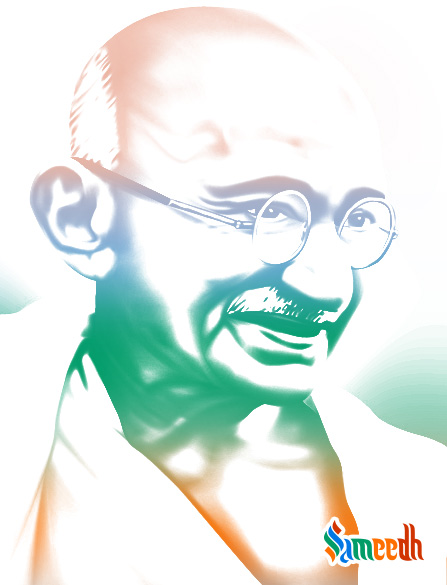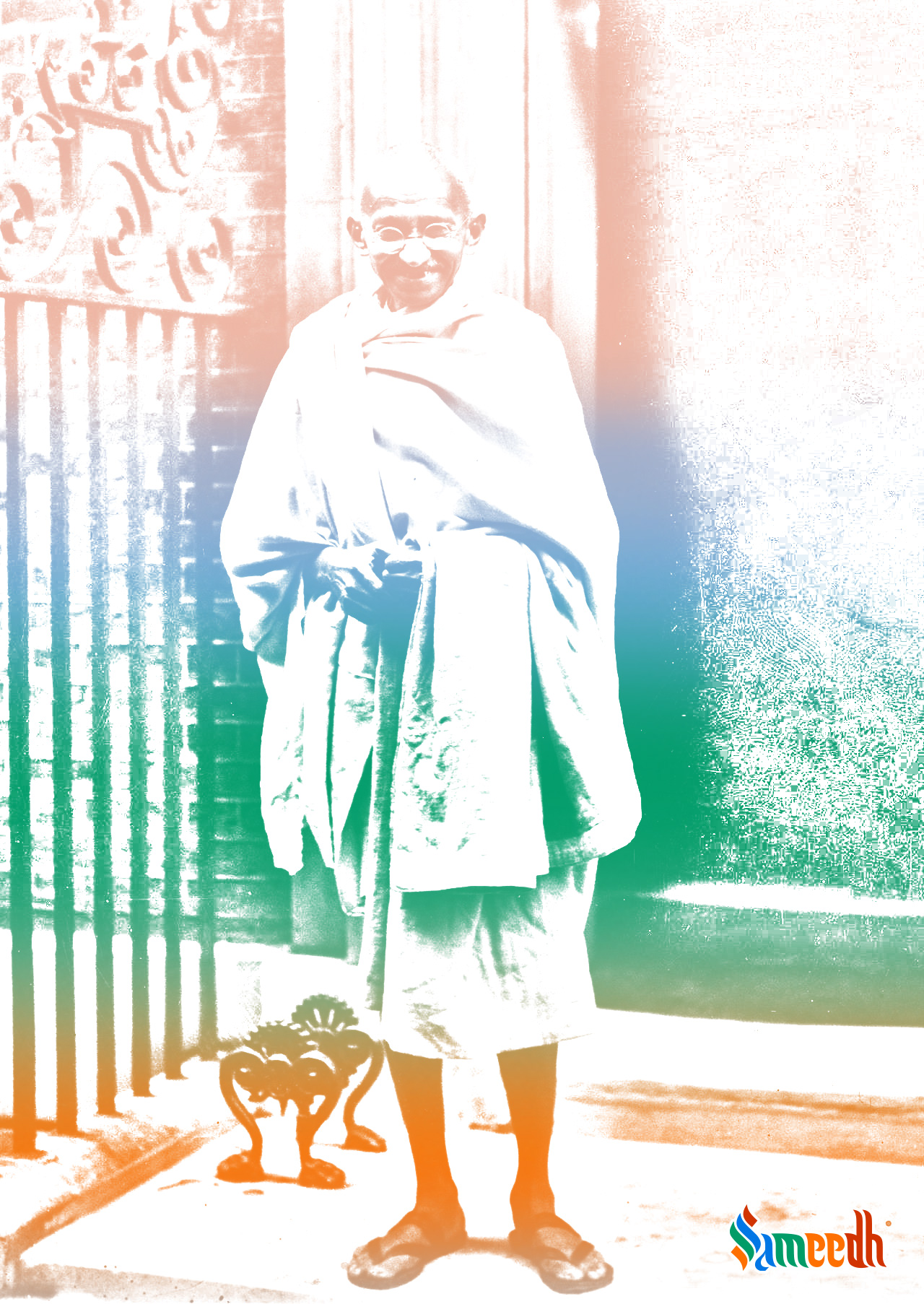The struggles, greatness and inspiring life journey of the famous Indian freedom fighter.
An Indian freedom fighter, lawyer, nationalist, social activist, politician. Mohandas Karamchand Gandhi, the Father of the Nation, Bapu, Mahatma, and many more names are used for this great soul that was born on 2nd of October 1869, to parents Karamchand and Putlibai Gandhi. This day was later known as International Day of Non Violence in Gandhi’s honour. His famous sayings” like “An eye for an eye will leave the whole world blind”, “A man is but a product of his thoughts. What he thinks he becomes” and “In a gentle way you can shake the world”, make him a motivational leader to look up to.

Early life
Mohandas was a wealthy young boy hailing from a powerful family, with his father being the chief minister of Porbandar, his birthplace. The title of “Mahatma” meaning great soul, was not something he was born with but an honorary name was given to him later in his life by Rabindranath Tagore, a Nobel prize winner and poet.
There was not much during his early days that made Gandhi stand out from others. Having been married at the mere age of 13 added to the teenage agony and resulted in him rebelling by smoking, occasional stealing and consuming meat, the most shocking step against his Hindu religion. But once he outgrew that phase, he had firmly decided to never indulge in such practices ever again. He became the epitome of truthfulness later in his life.
Struggles in South Africa
After his schooling, he travelled to South Africa to pursue law in 1888. It was then, in South Africa, the definition of racial discrimination was forced upon him and became his reality. The infamous train incident took place in 1893 when he was thrown out of a first-class train compartment after he refused to get seated in the rear end of the train due to his supposed inferior race. This was just one of the many shocking incidents of discrimination that occurred. It wasn’t long after when he founded Natal Indian Congress in 1894, through which he evoked a sense of unity in Indians to stand up against discrimination.
Return to India
In the British colonised India, the sufferings of needy, underprivileged people touched him and it was heartbreaking to look at such conditions of prolonged misery and poverty. Indians were being oppressed by the British rule in the form of imposing heavy taxes on even day-to-day necessities like salt, conversion of Hindus and Muslims to Christianity, drafting thousands of Indian soldiers in the British army during World War 1 against the wishes of Indian leaders and employing the technique of divide and rule to pit Hindus and Muslims against each other. Upon his return in 1915, he was already received by the public as an Indian Nationalist. He soon joined the Indian National Congress to progress his work towards political issues, fighting Crown or British rule and voicing the opinions of the suppressed masses.
On 12th March 1930, Gandhi began his Dandi March or Salt March. Dandi March was a quest to defy the heavy salt tax by marching to Dandi and making their own salt via evaporation directly from the sea. This march went down in Indian history as one of the most compelling Civil Disobedience Movements. This act of Satyagraha where “satya” translates to truth and implies “holding onto the truth”, was one of the many nonviolent forms of protest led by Mahatma Gandhi. He was a firm believer of ahimsa, non-violence, and preached the same to all his followers and devotees. He also promoted swaraj, self-government, and swadeshi, using products of one’s own country and boycotting British-made goods as policies of opposition against colonialism.

Gandhi outside 10 Downing Street, London.
Mohandas to Mahatma
Through his decades of perseverance through nonviolent means, preaching and inspiring Indians through his noble practices, instilling a sense of patriotism in the hearts of many, Mohandas Karamchand Gandhi had become a symbol of freedom struggle. Simple actions such as giving up on western clothing after returning from South Africa and restoring to a basic hand weaved khadi loincloth and shawl for the rest of his life, made the citizens confident in his humility. Additionally, Gandhi’s fasting without food for days in a stretch and getting imprisoned for months straight portrayed his courage and selflessness, he led by example.
Gandhi also persistently challenged the caste divide. He assigned the title of “Harijans”, meaning children of God to the lower caste of the society. He stood up against the malpractices suffered by the Dalit or lower caste people.
He dedicated most of his life to the common people, he was renowned for his ideologies, thoughts, bravery, unique non-violent protest practices, simplicity and approaches towards uplighting people.
After his demise, even the country that he unwaveringly protested against, released a stamp in his memory and honour. His funeral procession lasted 8 kilometers, such was his obsession, although that is never what he has aimed for.
Mahatma Gandhi not only said, “Be the change you want to see in the world”, but he also personified it through the course of his memorable and thought-provoking life.